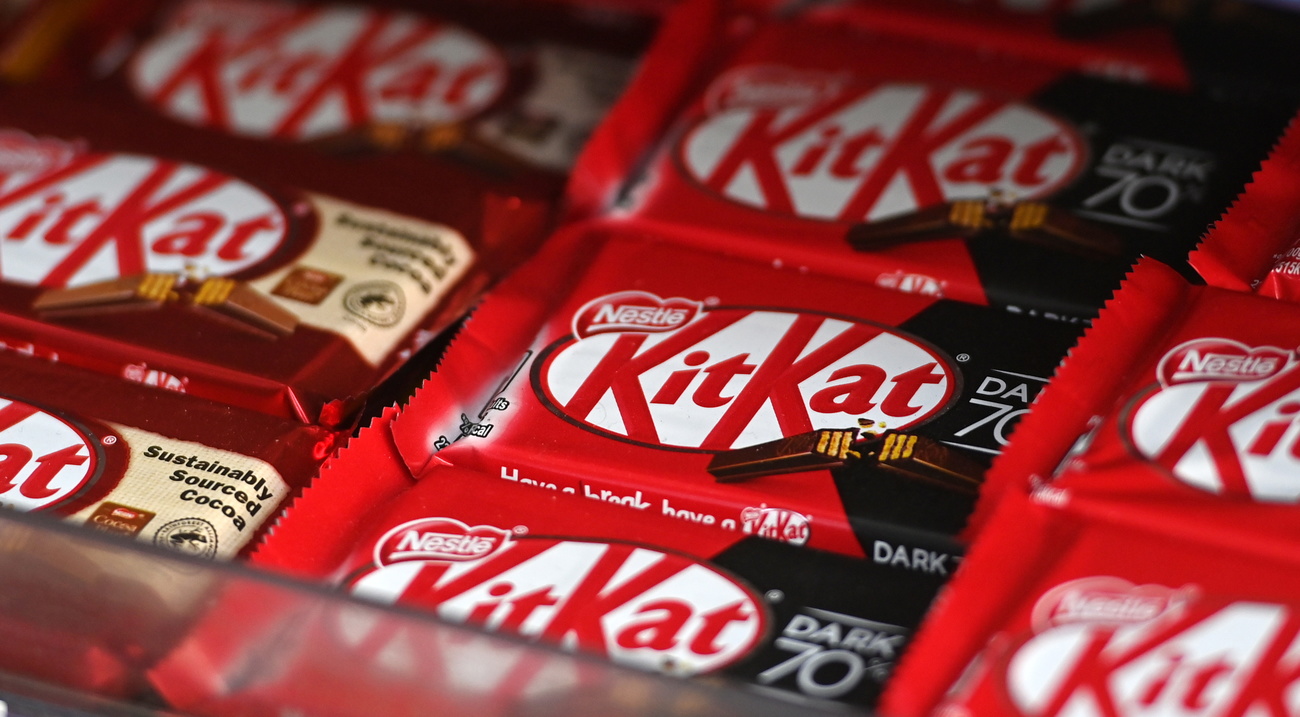
Health experts wage war on sugar

A broad alliance of health organisations is demanding measures such as a tax on sweet drinks in the fight against sugar consumption, especially by children.
Some 2.2 million people in Switzerland suffer from cardiovascular diseases, obesity, diabetes or cancer, the Alliance for Nutrition and HealthExternal link said at a press conference in Bern on Tuesday. These diseases account for 80% of healthcare costs, with sugar a significant cause, they said.
Sweet drinks and sweets account for the largest share (85%) of sugar consumption, with an estimated 85 grams per person per day, the alliance said. This is exacerbated by the addictive potential of sugar, as it affects the brain’s reward centre. More far-reaching measures are needed than those already voluntarily adopted, it said.

More
Nestlé says less than half of its mainstream food and drinks are considered ‘healthy’
Sugar consumption is particularly problematic for children. One in six children in Switzerland is overweight, and one in three is in educationally disadvantaged groups. According to a survey, 94% of food aimed at children does not meet the criteria of the World Health Organization (WHO).
Ban on advertising
The alliance called for the elimination of sugar and sweeteners in foods for babies, as well as a sugar limit and no sweeteners in products for children. Schools and day structures should not serve sweet drinks and sweet meals.
It also called for a ban on the advertising of high-sugar products aimed at children; it also wanted no promotional offers for sweet drinks and no health claims for foods with sugar.

More
Sugar debate in Switzerland leaves bitter taste
In addition, the state should levy a tax on drinks containing sugar or sweeteners, it said. What’s more, the Nutri-Score food labelExternal link should be on all products, and access to fruit and vegetables should be made easier.
The alliance comprises almost 50 organisations such as the Foundation for Consumer Protection, the Cancer League, the Paediatricians’ and Dentists’ Association, diabetes associations and cantonal Red Cross sections.

More
Swiss alliance calls for obesity to be recognised as a disease

In compliance with the JTI standards
More: SWI swissinfo.ch certified by the Journalism Trust Initiative





























You can find an overview of ongoing debates with our journalists here . Please join us!
If you want to start a conversation about a topic raised in this article or want to report factual errors, email us at english@swissinfo.ch.